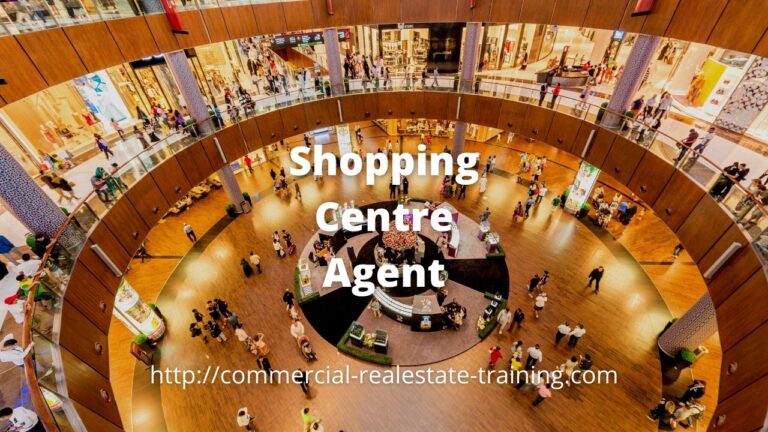Retail Shop Leasing Agents – The Perfect Cure to Help You Lease More Shops
In retail shopping center management and leasing, the threat of a vacant shop and the associated loss of rent can always be a major problem in rental cash flow for your landlord clients. The older the property, the more challenging the tenant mix and ongoing sales results can be.
The size of the retail shop or the number of vacancies across the property can also have a major impact on the net income for the landlord. That is where a top retail leasing agent can help out through market awareness and tenant contact strategies. I have said it many times before and I will repeat it here; retail is a great segment of the property market as long as your treat it with the specialization it requires.
High Quality Properties?
It stands to reason that every high quality shopping center should have a specific leasing plan and marketing strategy merged into its business plan; in that way they can resolve vacant tenancies quickly and effectively. The longer the vacancy exists, the greater the loss of rental and recovery of outgoings.
Leasing is a Strategic Process
Whilst every property business plan should have an allowance for vacancies and loss of rent, the overall leasing strategy for the property should be to optimize occupancy. As you construct a leasing plan for your property, also consider the possibility of rent free periods and incentives on the prevailing cash flow.
Lease Shops Quickly and Effectively
So what is the perfect cure to leasing vacant shops? Is there a single common answer? Given the reality of the retail property market today, and the variety and complexity of every shopping center layout, it is wise to evolve a number of strategies in parallel to reduce retail shop vacancies.
You understand your shopping center, the local area, and the customer demographic. You would also know if your customer base of landlords and investors is shifting, growing, or contracting. What are your customers looking for when it comes to retail tenant mix?
I have known some highly successful agents that have achieved their success from a select group of investors and landlords. You don’t need a lot of clients in the property industry, you just need the right ones. Selecting them and connecting with them is a real process.
What is Your Process of Leasing?
So what do you need to do here? A successful shopping center is something that evolves from careful property management, good tenant communication, and accurate lease monitoring. Communication is the key to understanding what the tenants are doing with sales, how the customers of feeling when they visit your property, and what the landlord requires from their retail shopping center asset.
Here are some of the main strategies used by shopping centers today in maximizing occupancy and reduce vacancies:
- Track lease expiry dates. Unless a property has a particular focus on and upcoming renovation and refurbishment plan, most lease vacancies will be discouraged or avoided, and on that basis new leases should be negotiated as early as possible prior to any lease expiry. Negotiate your leases early to keep your good retailers in your property.
- Keep in regular contact with all tenancies. It is a fact that many retail tenants will share their ideas and comments regards shopping center performance, customer sales, and tenancy mix viability. That information is valuable. Encourage tenants to talk to you about property performance and the activities within their business. Given and that tenants will be closely integrated to customer sales and interest,
- Understand the plans of the landlord with their investment. The gearing and financial strategy of the landlord will impact how much money they can put back into the property by way of capital works, renovations and upgrades, and property marketing. The tenants and customers expect a property to send all of the right messages in a consistent way to encourage ongoing regular sales.
- Develop a forward looking approach to property performance. Watch your leases and the associated critical dates at least 18 months out. Can you action any dates early? Don’t let the complexity of a large and varied tenant mix frustrate your day to day management and lease initiatives.
- Understand the needs for some tenants to relocate, expand, or contract. Given the trends of the retail shopping center sales trends, and the impact of the internet on customer shopping, it is wise that you adopt a proactive approach to moving tenants around in your property when they need to expand or contract. Failure to do that will see those tenants move to other local properties and thereby leave you with a vacancy.
- Undertake regular refurbishment plans and upgrades within the property; keep your property looking at its best. It is far too easy for a customer to shop elsewhere if their shopping needs are not fully satisfied. As a shopping center ages, the common areas and appearance factors of a property should be maintained.
- Market rentals will be set from lease negotiations and from tenant expectations. Whilst the landlord may set their market rental benchmarks to be targeted, lease enquiry drives market rental results. A successful retail property should be attractive to tenants and customers to lift and maintain lease enquiry.
Having had a lot to do with shopping centers I would recommend that any confident agent that is professionally skillful should get involved in this property segment and client type. The rewards are many.







